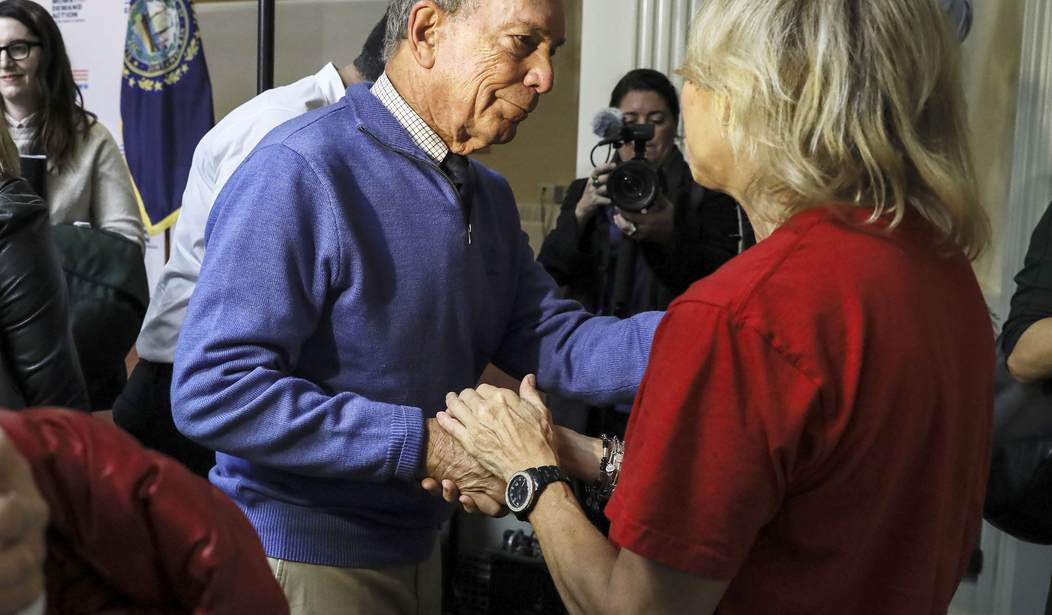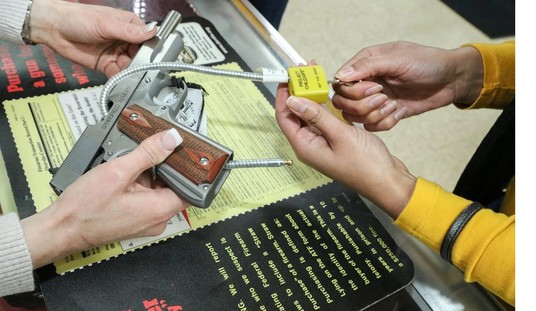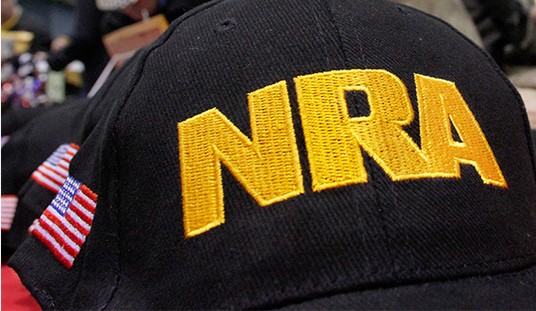Michael Bloomberg hasn’t officially announced he’s running for president, but the anti-gun billionaire is keeping his options open by filing for the Alabama Democratic primary before Friday’s deadline. As his own news organization reports, there are several more filing deadlines next week, but so far, Bloomberg has not officially announced his candidacy or begun hiring campaign staff, though advisors sure sound like a formal campaign launch is a near certainty.
“We now need to finish the job and ensure that Trump is defeated – but Mike is increasingly concerned that the current field of candidates is not well positioned to do that,” said Bloomberg adviser Howard Wolfson in a statement. Wolfson said Bloomberg would run on his record of serving as mayor of the nation’s largest city, building his own company and contributing to global causes through his philanthropic activities.
“Based on his record of accomplishment, leadership and his ability to bring people together to drive change, Mike would be able to take the fight to Trump and win,” Wolfson said.
Just how seriously should gun owners and Second Amendment supporters be treating the prospect of a Bloomberg campaign? As much as I’d love to dismiss the chances of Bloomberg having a real impact on the election if he chose to get in, I think we’d be doing ourselves a disservice by underestimating Bloomberg’s ability to compete in the primary, for several reasons.
First, there’s the cash advantage. Bloomberg can self-fund his campaign out of his $52-billion fortune, as well as contribute heavily to down-ticket Democrats in order to gain their backing and endorsements. Money isn’t everything in politics, but it does matter, and Bloomberg has shown that part of his playbook relies on simply outspending opponents in order to flood media markets with his messaging. Bloomberg even owns his own media company that’s sure to puff up his candidacy as well.
Ironically, as the New York Post reports, Bloomberg may not compete in the upcoming Democratic debates because he likely won’t have enough donations from other people to qualify.
Party rules require candidates collect donations from at least 165,000 contributors for the Nov. 20 debate and over 200,000 for the December 19 debate, as well as meet polling thresholds.
Bloomberg has never needed to raise vast sums of money or build a base of small-dollar donors. He personally bankrolled the half-billion dollars he shelled out on his mayoral campaigns.
Will average Americans donate to Bloomberg’s campaign? Bloomberg supposedly has 350,000 donors to Moms Demand Action, but how many of those folks would turn around and contribute cash to the former mayor’s presidential campaign remains to be seen.
The supporters of Moms Demand Action and Everytown for Gun Safety won’t just be a source of campaign cash for Bloomberg if he chooses to run. They’ll likely provide the infrastructure for his grassroots organizing and volunteer efforts as well, which could give him a huge advantage over other candidates still struggling to build their ground game or hoping to rely on get-out-the-vote efforts of the DNC once they win the nomination.
On the other hand, Bloomberg’s late entry into the race means many seasoned professional staffers are already working elsewhere.
Team Bloomberg will also have to find staffers — a likely tough task because his well-established opponents have scooped up much of the talent.
Bloomberg’s already in a knotty conflict with Joe Biden involving a powerhouse consulting firm, Knickerbocker SKD.
SKD managing partner Anita Dunn is a senior adviser to Joe Biden’s campaign. But another managing partner, Robert Knapp, handled media advertising for Bloomberg’s mayoral campaigns.
The firm issued a statement to The Post saying the firm is sticking with Biden — and indicated Knapp would have to leave from the firm to work for Bloomberg.
“SKDK, under the leadership of Anita Dunn, is and will continue to work for Joe Biden’s campaign. Bill Knapp, who has advised the Mayor for years, will do any campaign work outside of his role at the firm,” a spokesperson said.
Bloomberg apparently thinks he can buy some time to ramp up staffers by not competing in the Iowa caucuses or the New Hampshire primary, which are the first two electoral contests for Democrats in 2020. Instead, his strategy seems to be focusing on Nevada, South Carolina, and the 14 states holding their primaries on “Super Tuesday” in early March. That’s not a terrible strategy, especially since he’ll be able to flood the airwaves in all 14 Super Tuesday states with campaign ads and messaging, while every other candidate is going to have to selectively focus their resources on a handful of states where they feel they’re strongest.
Bloomberg’s own messaging likely won’t portray him as a Nanny-in-Chief who’s out to regulate everything from the sodas they drink to the guns that they own. Instead, it will puff him up as a business leader and philanthropist, a moderating voice compared to the socialistic tilt of Bernie Sanders and Elizabeth Warren. That’s the real reason why Bloomberg is weighing a run in the first place, after all. He’s not upset by the gun control positions taken by the other Democratic candidates. He’s worried that if Warren or Sanders wins, Wall Street and the pro-business vote will side with Trump over the candidates who believe billionaires are bad and capitalism is even worse.
Will that message resonate with the base of Democrats who’ll be voting in the upcoming primaries? According to one analysis from Harry Enten and Cristina Alesci at CNN, it’s a dubious proposition.
Bloomberg and his team are undeterred by the polling data they’ve conducted internally, which isn’t strong, said a Bloomberg adviser who was providing context on the strategy.“It’s not strong, but it’s not zero either,” the adviser said.The adviser said the thinking inside the Bloomberg camp is that current polls don’t account for moderates who will turn out in greater numbers for a candidate they’re excited about, the adviser said.“He’s a data guy so he’s good at knowing what data is real and what data is not real,” the adviser said.Indeed, Bloomberg may have a problem appealing to two of Biden’s main constituencies: white voters without a college degree and nonwhite voters. An October 2019 Fox News poll found that a mere 8% of whites without a college degree and 7% of nonwhite voters would definitely vote for Bloomberg in a Democratic primary.









